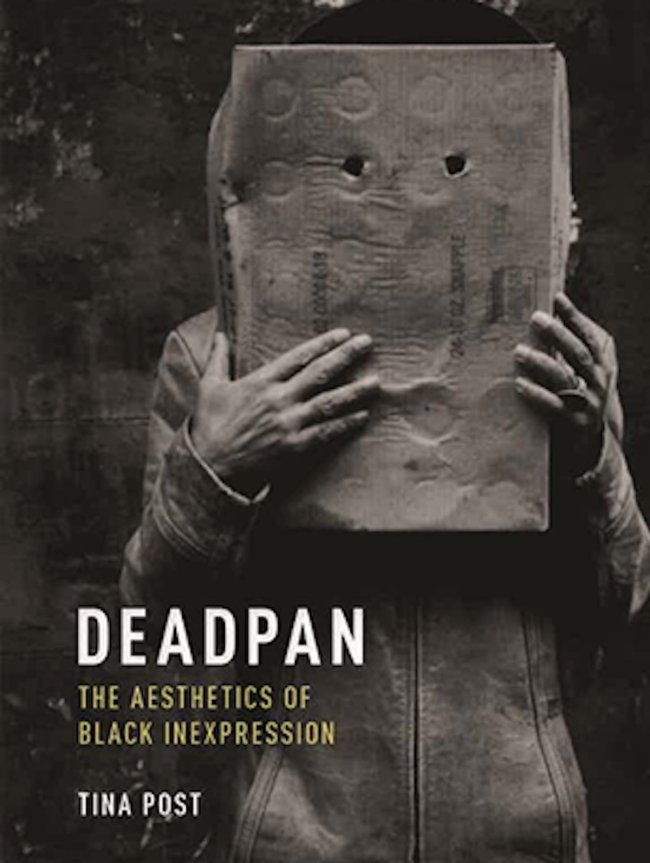Art History faculty Tina Post Receives ASAP Best Book Prize for 'Deadpan'
December 7, 2023

Asst. Prof. Tina Post became intrigued with how the gesture of expressionlessness operated in the 20th-century Black performances across literature, visual and performance art, film, theater, dance, the boxing ring and everyday life. For her original insights, she recently received the Association for the Study of the Arts of the Present Best Book Prize for her first book, “Deadpan: The Aesthetics of Black Inexpression” (2023). The ASAP Prize recognizes the book that has made the most significant contribution to the study of the arts of the present.
Post contends that deadpan—dead is for inanimate, and pan is slang for face—is an investigation of the aesthetic affects at work at the intersection of Blackness and embodied expression.
“This book motivated by questions about the phenomenon I see,” said Post, assistant professor in the Department of English Language and Literature and the College at UChicago. “I had not read satisfying explorations about expressionlessness and its intersection with Blackness.”
Much of the existing scholarship on Black culture and aesthetics focuses on Black expression that is loud and big. Post shows that this is not the only type of Black culture.
Post contends deadpan is analogous to Asian inscrutability. “It’s a long-standing trope to project stereotypical characteristics onto Asians and Blacks,” she said. “Like deadpan, inscrutability is something Asians work with and work against.”
“The ASAP Best Book Award recognizes scholarship of profound originality in the study of aesthetics,” said Deborah L. Nelson, dean of the Division of the Humanities. “Tina Post’s 'Deadpan' heightens the visibility of this category of expression by drawing on multiple artistic contexts across the 20th and 21st centuries. The play between visibility and withholding permeates black culture and, by its influence, contemporary culture as a whole.”
One question animating the book is why photos of heavy-weight boxer Joe Louis, with his deadpan expressions, showed proof of his respectability. In contrast, when other famous 20th-century Black boxers like Floyd Patterson and George Foreman appeared expressionless, their faces conveyed their menace in the boxing ring.
Among the embodied and artistic gestures of deadpan, Post reflects on the film performances of actor Buster Keaton. Known as "the great stoneface," Keaton is the paradigm of white deadpanning. His acting signaled well-rehearsed cues that invoke Blackness in the white imagination.
“Buster Keaton builds off the cultural construction of Blackness as indestructible,” Post said. “At key points in his career, he would substitute blackface if he couldn’t perform indestructability.”
In "Deadpan," Post compares Blackness to deadpan because both exist in the disputed territory between performance and interpretation. To be expressionless can be an advantage in social situations, especially for those with unequal power in society—the circumstances for many day-to-day experiences of Black Americans.
“Moving fluidly across media, historical time, and cultural registers, Tina Post's 'Deadpan' is an original and profound exploration of the aesthetic and political powers of inexpression—the withholding of affect, emotion, passion,” said Timothy M. Harrison, associate professor in the Department of English Language and Literature. “I think the most exciting feature of Tina's book is the way it tarries with ambiguity, the way the book, much like its subject, refuses to pin down what or how or why the gestures of deadpan mean or signify, and instead invites readers into the expansive horizons and possibilities opened by that refusal.”
Moving forward, Post has two projects on her mind. One begins where "Deadpan" ends, considering how Black robots and androids fit into the culture of expressionlessness. A second project would delve into the aesthetic category of coziness, and how it does and does not accommodate race.
Written by Sara Patterson for the UChicago News
This story was adapted from UChicago's Division of the Humanities website.








